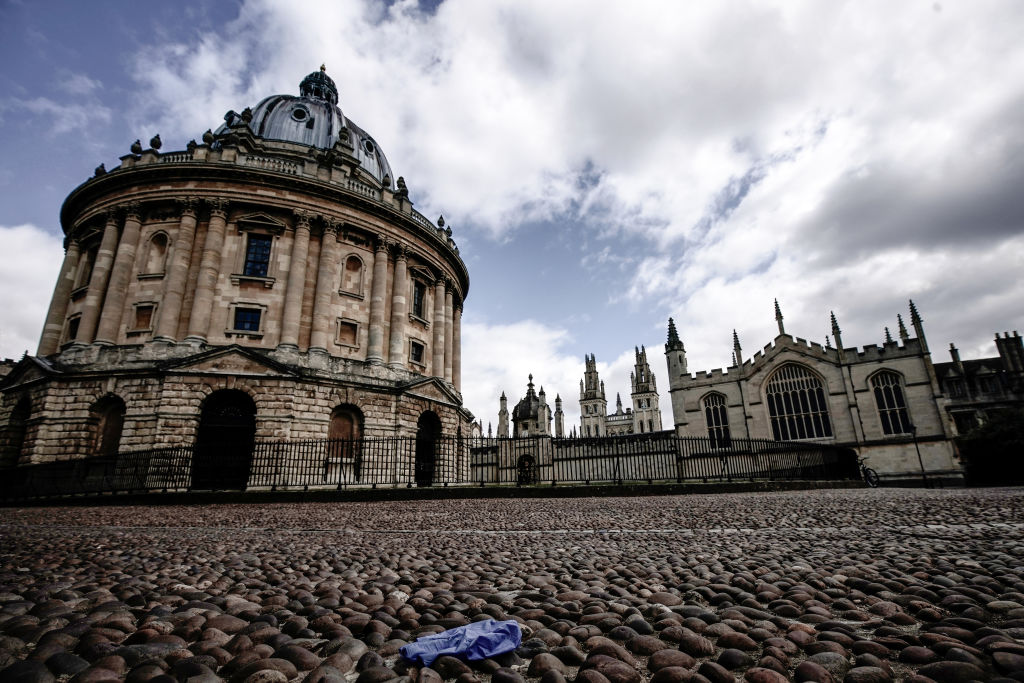As with almost every country around the world, India is busy dealing with the Covid crisis. But its parliament briefly turned its attention away from the pandemic in the last few days to another issue playing out thousands of miles away: a row at Oxford University involving an Indian postgraduate student. This no ordinary campus bust-up: the fallout could have big implications for the relationship between India and Britain.
Rashmi Samant, who is the first child in her family to go to university, made history last month when a landslide victory saw her become the first Indian woman to head up the Oxford Student Union (OSU). But her victory was short-lived. Within days she was forced to resign after old Instagram posts were dug up. The offending posts – which included a picture at the Berlin Holocaust Memorial, a photo of her during a visit to Malaysia along with the words, ‘Ching Chang’, and a post that separated ‘women’ and ‘transwomen’ – saw her condemned for ‘xenophobia’ and ‘transphobia’.
The posts were mostly years old, but that didn’t matter to her detractors. These included Oxford SU’s LGBTQ campaign, and the SU campaign for racial awareness and equality, which said ‘she (Samant) has hurt the East-Asian, Jewish, and trans communities’. Dr Abhijit Sarkar, a postdoctoral researcher at Oxford, also appeared to join in the condemnation, posting an image of Samant’s parents with the caption:
Samant’s case has much wider ramifications beyond Oxford University’s reputation and the dark side of student politics
‘She (Samant) has come to Oxford from Karnataka, which is bastion of Islamophobic far right forces…Oxford students are still not ready for ‘Sanatani’ president.’
Despite issuing an apology, Samant was hounded online to the extent that she felt unsafe in Oxford. She promptly packed her bags and flew home to complete her engineering studies 5,000 away from the city of dreaming spires. She spent a brief spell in hospital with stress.
But while Samant has left the city, the fallout continues: Oxford has launched a probe into allegations of cyber bullying. And Hindus are asking whether Oxford is safe for Hindu students.
Whether or not it is, it’s clear Samant’s case has much wider ramifications beyond Oxford University’s reputation and the dark side of student politics. Could this sorry saga have longer term implications when it comes to UK/India relations?
Samant’s election was big news in Karnataka, southwest India, where she lives. And the messy events since her win have sparked plenty of outrage. A petition against Sarkar has received 40,000 signatures and includes the words ‘we the Hindu Community are tired of being labelled ‘soft’, being an easy target and a tired of being taken for granted.’ Meanwhile India’s ruling Bharatiya Janata Party’s (BJP) youth wing has issued a statement demanding Oxford University act against the ‘culprits’ who made ‘remarks’ towards the religion of Samant’s parents.
Ashwini Vaishnav, a member of BJP said that the row reflected colonial-era attitudes at Oxford. And in India’s parliament, the country’s external affairs minister Subrahmanyam Jaishankar, said: ‘As the land of Mahatma Gandhi, we can never ever turn our eyes away from racism wherever it is, particularly so when it is in a country where we have such a large diaspora.’ He went on: ‘As a friend of the UK, we also have concerns about its reputational impact.’
The outcome of Oxford’s investigation will no doubt be closely monitored both here and in New Delhi.






Comments